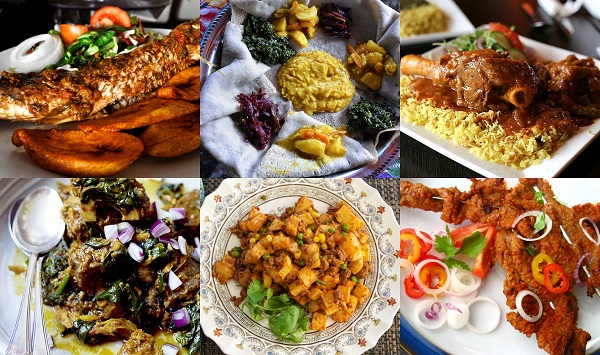African cuisine is rapidly gaining global popularity, emerging as one of the most exciting and influential culinary trends worldwide. This surge in interest is driven by a combination of the continent’s rich cultural heritage, bold and unique flavors, health-conscious ingredients, and the growing presence of African food in international media and restaurants.
One of the key reasons African cuisine is captivating global audiences is its diverse and bold flavors. African dishes often feature a vibrant mix of spices such as ginger, garlic, chili peppers, and nutmeg, creating complex and tantalizing taste profiles that stand out in the global food scene. From the spicy stews of West Africa to the aromatic tagines of North Africa and the tangy fermented foods of East Africa, the continent offers a rich palette of flavors that appeal to adventurous eaters and food enthusiasts alike.
Health-conscious consumers are also drawn to African cuisine because many traditional dishes emphasize fresh vegetables, lean meats, and nutrient-dense grains. Indigenous African superfoods like teff, fonio, baobab, and moringa are gaining recognition for their high nutritional value and health benefits. These ingredients not only offer wholesome nutrition but also support sustainable agriculture and local farming communities across Africa. The emphasis on natural, minimally processed foods aligns well with the global trend toward healthier eating.
African cuisine’s cultural diversity is another factor fueling its global rise. The continent’s 54 countries each boast unique culinary traditions shaped by geography, climate, and history. For example, North African countries like Morocco and Tunisia are famous for couscous and harissa, while West African staples include jollof rice, egusi soup, and fufu. East African dishes such as Ethiopian injera and Somali samosas reflect a fusion of African, Middle Eastern, and Indian influences. Southern Africa’s braai culture and dishes like bobotie and biltong add further variety. This vast culinary diversity offers endless inspiration for chefs and food lovers worldwide.
The global African diaspora plays a crucial role in spreading African cuisine internationally. Diaspora communities have introduced traditional dishes to new regions, while African chefs and food influencers have leveraged social media platforms like Instagram and YouTube to showcase recipes and cooking techniques. This digital exposure has helped African food gain visibility and popularity beyond the continent. Additionally, fusion cuisine—where African flavors are blended with local culinary traditions—has created innovative dishes that resonate with a broad audience.
African restaurants are increasingly appearing in major cities worldwide, from street food vendors to fine dining establishments. Notably, West African cuisine has been recognized as a top culinary trend, with some African restaurants earning prestigious accolades such as Michelin stars. Celebrity chefs of African descent, includingMarcus Samuelsson and Kwame Onwuachi, are instrumental in elevating African gastronomy on the global stage, blending tradition with modern culinary artistry.

Traditional African cooking techniques are also influencing global culinary practices. Methods such as slow cooking in clay pots, grilling and smoking meats (as seen in South Africa’s braai or Ethiopian tibs), and fermenting foods are being embraced for their ability to enhance flavors and textures. These techniques add depth and authenticity to dishes, further attracting food enthusiasts seeking new culinary experiences.
The rise of African cuisine is not only a gastronomic phenomenon but also an economic and cultural one. Increased global demand for African ingredients supports local farmers and promotes sustainable agriculture. Culinary tourism is growing as more travelers seek authentic food experiences in Africa, boosting local economies and cultural exchange. Moreover, African cuisine challenges stereotypes by showcasing the continent’s rich cultural heritage and culinary innovation, fostering greater appreciation and understanding worldwide.
In conclusion,
African cuisine’s global popularity is a testament to its rich flavors, health benefits, cultural diversity, and the dynamic influence of the African diaspora and modern culinary ambassadors. As African food continues to inspire chefs and delight diners around the world, it is reshaping global food trends and celebrating the continent’s vibrant culinary heritage. This growing movement highlights the power of food to connect cultures and create shared experiences across borders.

